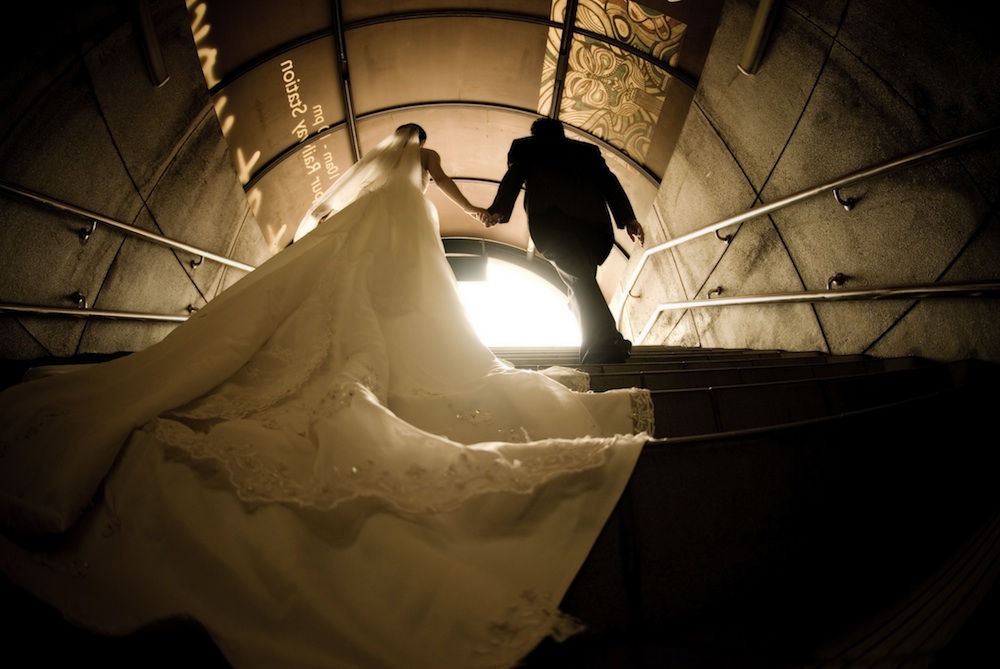Why Your 1st Marriage Has a 50% Chance of Lasting

If you're about to walk down the aisle for the first time, beware there's a 50 percent chance the union won't last to your 20th anniversary, according to a new survey.
That number, however, hasn't budged much in the past three decades of data collected as part of the National Survey of Family Growth (NSFG).
The findings "show trends that are consistent with broad demographic changes in the American family that have occurred in the United States over the last several decades," the researchers write in the March 22 issue of the National Health Statistics Report. "One such trend is an increase in the time spent unmarried among women and men. For women, there was a continued decrease in the percentage currently married for the first time — and an increase in the percent currently cohabiting — in 2006–2010 compared with earlier years."
The new results are based on interviews conducted between 2006 and 2010 with a nationally representative sample of 12,279 women and 10,403 men, ages 15 to 44. This same survey was also conducted in 1973, 1976, 1982, 1988, 1995 and 2002.
The percentage of women living with a man in a sexual relationship rose from 3 percent in 1982 to 11 percent in the 2006-2010 period. Currently, women also seem to be marrying at older ages than years past, with the recent median age about 26 for women and 28 for men.
Men and women may be taking their time to pop the question. The number of women in a first marriage decreased from 44 percent in 1982 to 36 percent in 2006–2010. Meanwhile, the percentage of women currently living with a romantic other increased from 3 percent in 1982 to 11 percent in the most recent survey.
The likelihood a first marriage would last at least 10 years was 68 percent for women and 70 percent for men, in the most recent survey; those numbers take a dive when looking ahead 20 years, with the probability being 52 percent for women and 56 percent for men. These estimates are virtually identical to those found in the early 1970s, the researchers noted. [US Marriage & Divorce Stats]
Get the world’s most fascinating discoveries delivered straight to your inbox.
Those who married in their teens were less likely to reach their 20th anniversary compared with men and women who tied the knot at age 20 or over. Religious upbringing seemed to make a difference, with women who reported being raised in "other religions" having a 65 percent chance of having a 20-year or longer first marriage. That was followed by women raised Catholic (53 percent), Protestant (50 percent) and no religious affiliation (43 percent).
Another factor included education, with men and women holding at least a bachelor's degree having a greater likelihood of a long first marriage than those with less education. Men and women with no biological children going into their first marriage were also more likely than those with kids to have a 20-year or longer first marriage.
Living together before marriage didn't seem to make a huge difference on a long-lasting union, particularly for men. For women, those who didn't cohabit before their first marriage were more likely to survive to the 20-year marriage mark than those who did live together premaritally (57 percent versus about 45 percent, respectively).
Follow LiveScience for the latest in science news and discoveries on Twitter @livescience and on Facebook.
Jeanna Bryner is managing editor of Scientific American. Previously she was editor in chief of Live Science and, prior to that, an editor at Scholastic's Science World magazine. Bryner has an English degree from Salisbury University, a master's degree in biogeochemistry and environmental sciences from the University of Maryland and a graduate science journalism degree from New York University. She has worked as a biologist in Florida, where she monitored wetlands and did field surveys for endangered species, including the gorgeous Florida Scrub Jay. She also received an ocean sciences journalism fellowship from the Woods Hole Oceanographic Institution. She is a firm believer that science is for everyone and that just about everything can be viewed through the lens of science.


